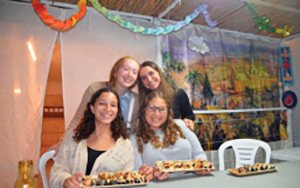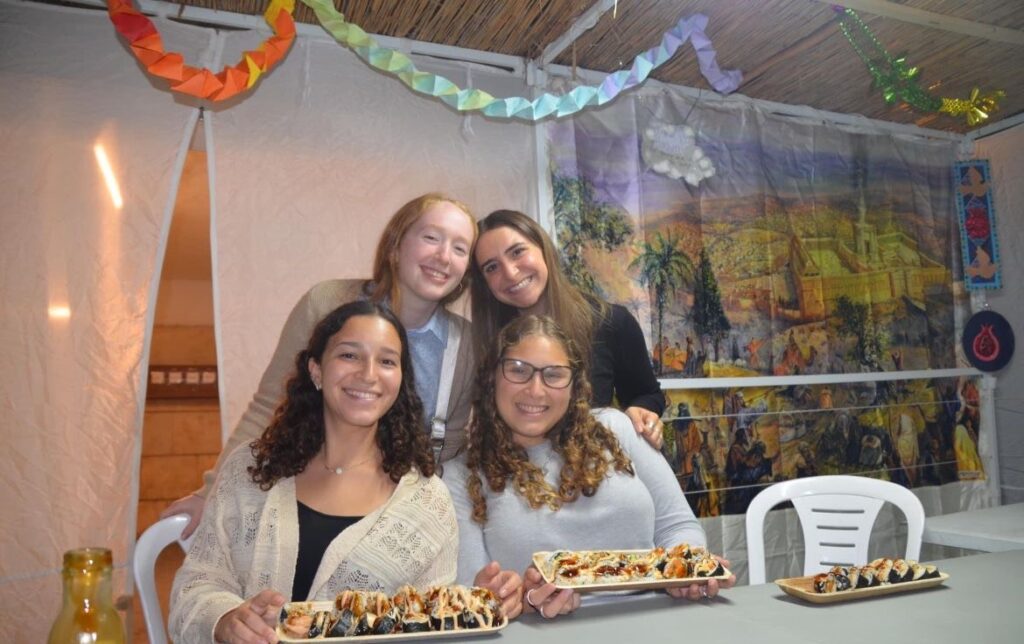
As bomb sirens blare across Israel, a 19-year-old Jewish girl from Queens rushes to wheel elderly patients and their ventilators into the shelter of a Jerusalem hospital. In a nearby daycare, a Londoner of the same age rounds up kindergartners clapping to the tune of the alarm. Far in the fields of a northern kibbutz, an Australian drops her farming tools and runs to the nearest house, while in Tel Aviv a young Detroit native follows the staff of the Prime Minister’s Office into the bunker.
These women, just a year or two out of high school, are among Israel’s 250 lone bnot sherut—national service volunteers who leave their homes abroad to spend a year or two helping Israeli society.
Sherut Leumi (National Service), an alternative to military enlistment for exempt Israelis, places volunteers in schools, hospitals, government offices and other civilian sectors. Most of the 19,000 participants are Israeli women with religious exemptions from the draft, along with smaller numbers of Arab, Druze and haredi volunteers. A smaller faction consists of lone Bnot Sherut from across the Diaspora, primarily the U.S., Europe and South America.
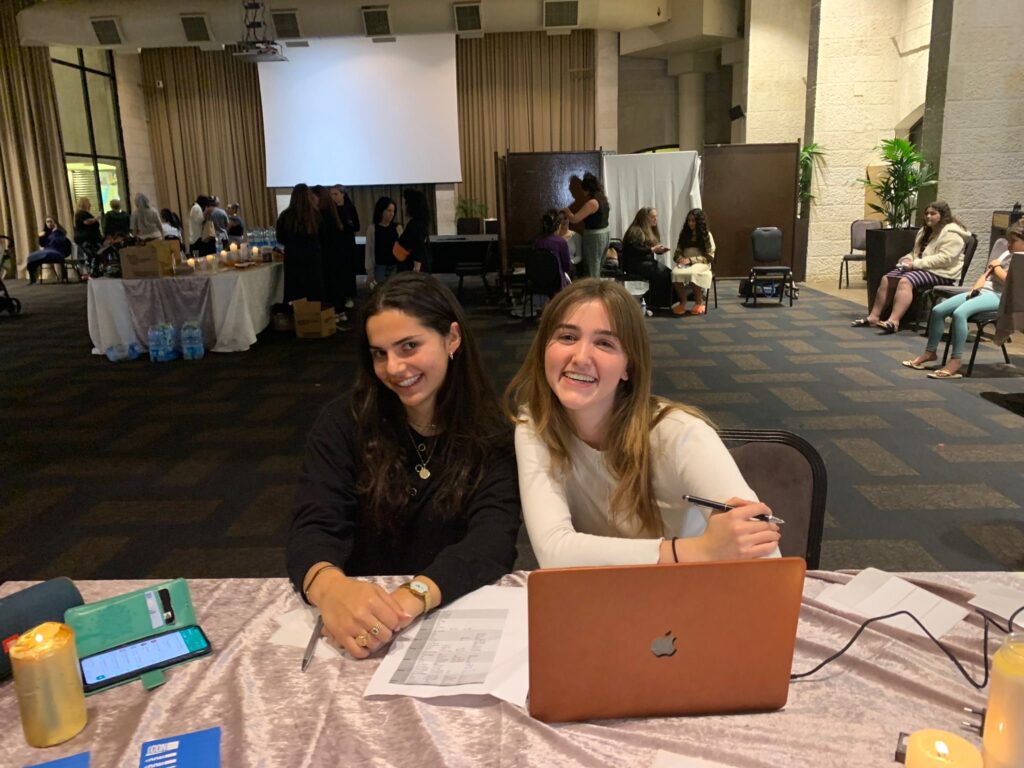
Over the summer, while completing my own two years as a lone bat sherut, I interviewed 15 of these unique volunteers to explore how serving through the ongoing Israel-Hamas war shaped their experiences.
When the October 7 attack took place, just a month after volunteers began their service, concerned parents offered to fly their daughters home.
Many volunteers, however, say they felt they already were home. At her sticky-note-covered desk in the Ministry of Justice, New Jersey volunteer Molly Glicksman shrugs and says, “If no one stayed in Israel, there would be no Israel to protect.”
Waking up on October 8 to find many of their workplaces temporarily closed, lone bnot sherut found other ways to contribute. One anonymous volunteer describes “vacuuming in hotels, making care packages and babysitting for affected families until I could go back to work.”
Shuli Goldstein from Miami, Florida, frequently rushed out to deliver supplies to civilians and army bases, independently raising $6,000 to support her efforts.
Once workplaces resumed operations, those in schools watched their classrooms fill with evacuated children from the North and South. At a daycare for autistic children, New York volunteer Temima Schwartz recalls, “Bomb sirens became routine for the kids,” while a volunteer paramedic at Magen David Adom worked extra-long shifts covering for coworkers called into reserve duty.
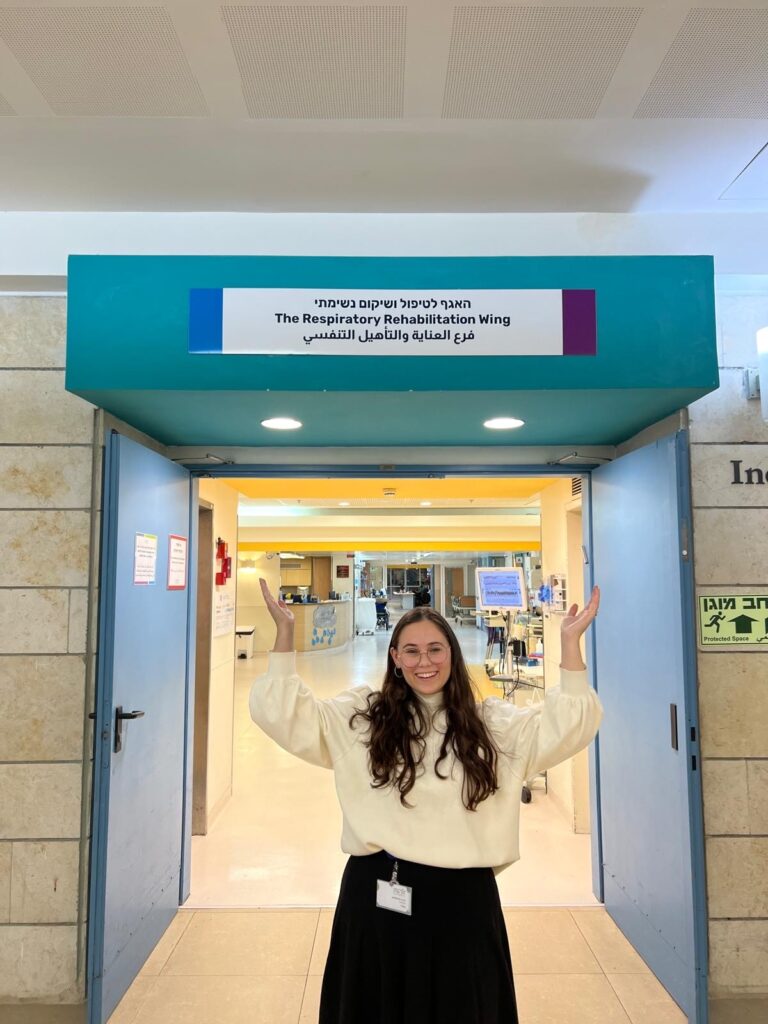
The war transformed my own volunteer service in the Knesset International Relations Department, where efforts pivoted to hosting solidarity visits of foreign delegations. On my 21st birthday, I accompanied Italian parliamentarians to Kibbutz Kfar Aza, where over 60 residents were brutally murdered on October 7, and at least 18 were taken hostage. I can vividly picture the ruins of houses spray-painted with the number of dead found inside and the horrified faces of the visiting legislators.
Eli Klein from Detroit, Michigan, shares her experience working with the military’s Hostage Negotiation and Reabsorption Unit at the Prime Minister’s Office. “For most of the people I work with, I’m the first American they’ve ever talked to! They respect it when I insist on speaking in Hebrew,” she laughs, “even if I’m not making sense.”
Despite the vital contributions of bnot sherut, Eli notes that their work is often overlooked. “Even while working on an army base alongside soldiers, our service was dismissed as second-rate,” she says. Yet public perception does show support. A 2021 poll found that 91% of Israelis believe Sherut Leumi is essential, and 86% consider volunteers as patriotic as IDF soldiers.
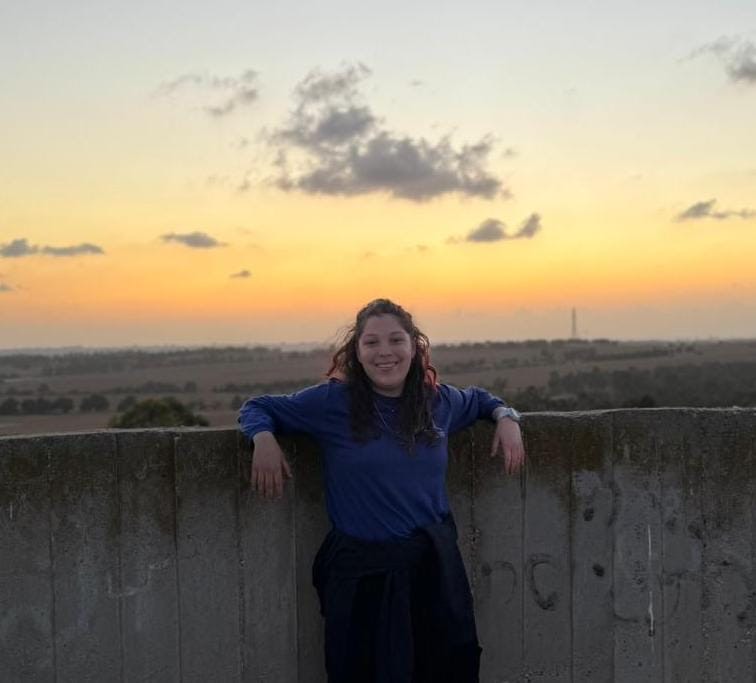
When asked how they navigated the challenges of the year, many volunteers credited the bonds they formed with fellow lone bnot sherut. “Since we’re all here alone, we become each other’s family,” one volunteer explains.
The Nefesh B’Nefesh Ori Program for Lone Bnot Sherut played a significant role in creating a support network. Karen Richman, the program’s manager, says only two of last year’s 150 participants returned to their home countries after completing their service. The vast majority stayed, some having made aliyah just before their service, while others reversed their plans to return abroad while in service.
For these volunteers, the choice to stay was often shaped by profound wartime experiences. From consoling the infants of fallen fathers to assisting government officials, these young women immersed themselves in the Israeli homefront during the nation’s most trying hours, emerging deeply inspired.
Long Island native Tehila Jansenson’s experience in Kibbutz Kfar Etzion reflects this transformation. She shares, “The woman I was supposed to assist lost her husband in battle, so for ten months, I ran school activities alone. One of my sixth graders lost his father in Gaza, and I had to guide him and others through unimaginable hardship. Late at night, when the war kept me awake, I’d go into the nursery and hug the babies there a little tighter.”
Tehila recalls “many moments when I realized the magnitude of the Israeli mindset. I once helped at a hotel for refugees from the South, where I heard a 4-year-old boy singing, “You Won’t Defeat Me.” He saw absolute hell in his hometown of Sderot, and there he was singing softly to himself a song of strength and faith.”
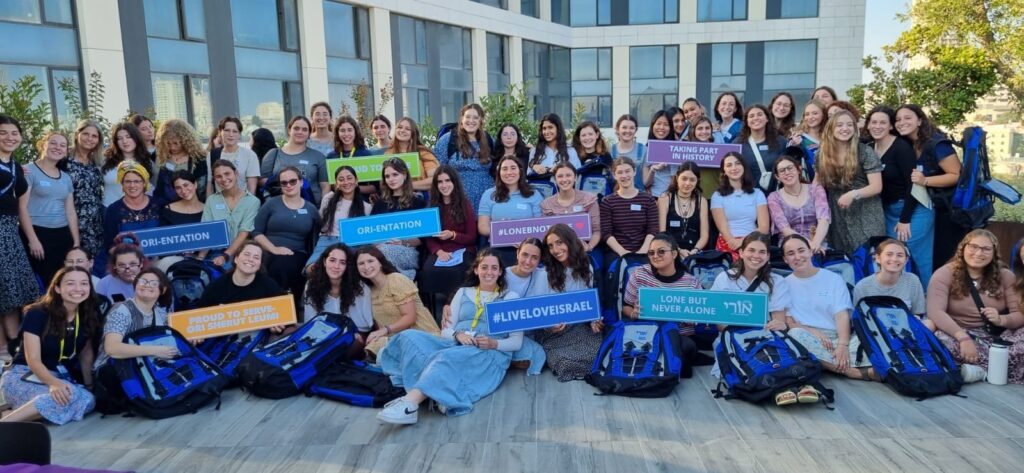
Tehila and others gained a new perspective on life in Israel. “I think in America, it’s acceptable to feel whatever you want for as long as you want. However, in Israel you cry yourself to sleep, but you get up in the morning. Everyone here has an internal strength they aren’t even aware of.”
Rising animosity toward Israel on college campuses further solidified volunteers’ desire to remain in the Jewish state. Molly Glicksman recalls a phone call with her brother, a student at an Ivy League university, who asked if she felt safe in Israel. She quipped, “Do you feel safe wearing your kippah on campus?”
Even those planning to leave Israel changed their minds, such as Sivan Harpaz. “I never planned to move here. But after October 7, I realized America and Europe are becoming worse for Jews. This is a wake-up call to come home now.”
To those considering Sherut Leumi or moving to Israel, Tehila offers some final advice: “You won’t ever feel truly ready,but do it anyway. Do it scared, do it without knowing the language, without having friends. I’ve had an insanely difficult time where nothing went smoothly, but I stayed through all of it, and I’m more grateful every day. There is no better time than now.”
Nava Freiberg made aliyah to Israel after attending Midreshet Harova in 2022. She completed her Sherut Leumi service at Yad Rachel therapy centers for youth at risk and in the Knesset International Relations Department. Currently based in Jerusalem, she plans to study international relations and is passionate about bringing Diaspora Jewry closer to Israel. You can follow her publications at https://blogs.timesofisrael.com/author/nava-freiberg/.



